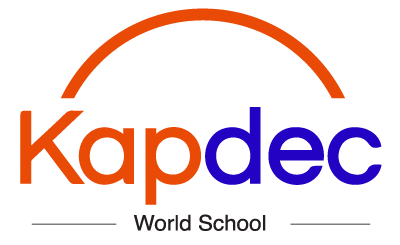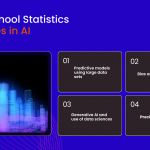STEM—Science, Technology, Engineering, and Mathematics—has shaped everything from smartphones to space travel. Yet, students often avoid these subjects because of myths that make STEM sound intimidating. At Kapdec, our expert tutors hear these misconceptions all the time. Today, we’re busting the biggest STEM myths with real insight, humor, and strategies that make learning easier and more exciting(Refer).
Myth 1: “You need to be a genius to do math or science.
Reality: STEM is about persistence, not perfection. No one is born solving calculus problems or building robots. Progress comes with practice and the right guidance. Our Kapdec STEM tutors break down tough topics into manageable steps, showing students that success is built one problem at a time.
Myth 2: “Physics is just about memorizing formulas.”
Reality: Physics is the language of the universe. Sure, formulas matter, but they’re tools—not the whole story. Instead of rote memorization, Kapdec tutors connect concepts to everyday life: why roller coasters stay on track, how airplanes stay in the sky, or why your phone charges faster with a certain adapter. Suddenly, physics feels practical and even fun.
Myth 3: “Biology is only about memorizing diagrams.”
Reality: Biology is about life itself. Instead of endless flashcards, students learn more when they connect concepts to real experiences: why exercise makes your heart race, how nutrition fuels your body, or how vaccines protect communities. With the right tutoring approach, biology feels like solving the mystery of life—not just labeling a cell diagram.
Myth 4: “Coding is too hard for beginners.”
Reality: Coding is simply another language. Like learning Spanish or French, you start with small phrases (“Hello World”) and build up to bigger projects. At Kapdec, we’ve seen high schoolers move from zero experience to creating apps, websites, and even games with consistent practice and tutor support.
Myth 5: “STEM careers are boring.”
Reality: STEM careers shape the future. Whether it’s developing eco-friendly cars, researching cures for diseases, or building artificial intelligence like ChatGPT, STEM is driving the most exciting changes in the world. Far from boring, it’s one of the most innovative fields to be part of.
Why Debunking These Myths Matters
When students believe STEM myths, they limit themselves. Breaking these misconceptions opens doors to higher test scores, stronger college applications, and more confidence in schoolwork. For example, students preparing for SAT, ACT, or AP exams in math, physics, or biology often improve dramatically once they realize STEM subjects are approachable with the right tutor by their side.
At Kapdec, our real tutors combine expert knowledge with patience and creativity. Whether it’s one-on-one STEM tutoring in New York City or online tutoring sessions worldwide, we help students replace fear with curiosity—and that’s where true learning begins.
FAQs: Crazy STEM Myths Debunked by Real Tutors
Is STEM only for “geniuses” or naturally smart people?
Absolutely not. This is one of the biggest myths that discourages students from exploring STEM. Real tutors explain that STEM is a skill set, not a talent lottery. Problem-solving, logical thinking, and creativity can be developed over time with practice. Just like learning a language or a sport, consistent effort and curiosity matter more than raw “genius.” Many students who thought they “weren’t STEM people” have excelled once they received proper guidance and encouragement.
Do you need to be good at math to succeed in STEM?
Math is definitely a foundation for many STEM fields, but it’s not the only skill that defines success. Tutors often remind students that fields like biology, computer science, and engineering also require creativity, pattern recognition, teamwork, and communication. Struggling with math at first doesn’t disqualify anyone from STEM. With the right tutoring support, students often overcome math anxiety and develop confidence in problem-solving.
Is coding the only career option in STEM?
Many believe STEM equals coding jobs, but tutors emphasize that the field is far broader. STEM includes environmental science, data analysis, physics research, medical technology, robotics, and even space exploration. Coding is just one part of the puzzle. Real-world STEM careers also value experimentation, observation, and innovation in areas far beyond software development.
Are STEM careers boring and anti-social?
Far from it. Tutors often point out that STEM is deeply collaborative. Whether it’s scientists working in labs, engineers designing sustainable cities, or data teams solving global challenges, STEM is about teamwork and real-world impact. Students who fear “sitting behind a screen all day” are surprised to discover how social, creative, and impactful these careers can be.
Do you have to be a man to excel in STEM?
This is a damaging stereotype. Historically, women and minorities have been underrepresented in STEM, but that does not mean they are less capable. Tutors highlight countless role models like Marie Curie, Katherine Johnson, and Ada Lovelace who shaped STEM fields. Today, inclusive education and mentorship are helping more women thrive in STEM, proving that gender has nothing to do with capability.
Is failure in STEM a sign that you’re not cut out for it?
Real tutors stress that failure is not the end—it’s the beginning of learning. In STEM, experiments fail, codes break, and equations don’t balance on the first try. What matters is resilience and iteration. Tutors share stories where mistakes led to breakthroughs, helping students see failure as feedback, not defeat. Developing this mindset prepares learners for real-world problem-solving and innovation.
Final Thought
STEM isn’t just for “geniuses.” With guidance, anyone can master math, science, coding, or engineering. Don’t let myths hold you back. Whether you’re aiming for top SAT scores, excelling in AP courses, or simply want to explore how STEM connects to everyday life, Kapdec tutoring makes STEM fun, approachable, and empowering.






